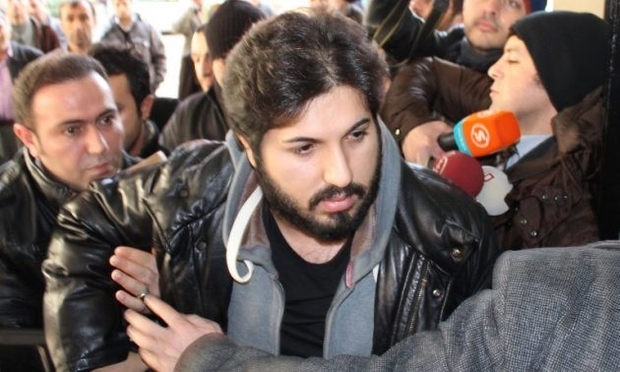Jailed gold trader Zarrab claims death threats for co-operating with US

A Turkish-Iranian gold trader testifying for US prosecutors in a criminal trial involving sanctions against Iran said on Thursday that he was removed from a New York federal jail after another inmate threatened to kill him for cooperating with authorities.
"He said that he had received instructions to kill because I was cooperating," the trader, Reza Zarrab, told jurors in a Manhattan courtroom. He did not identify the person or say when the threat was made. The US Bureau of Prisons did not immediately respond to a request for comment.
Zarrab said that after the encounter, he was transferred from Brooklyn, New York's Metropolitan Detention Centre to the custody of the Federal Bureau of Investigation.
The account came near the end of Zarrab's testimony, which began last Wednesday and concluded on Thursday afternoon.
Meanwhile, Zarrab has been accused of sexually assaulting a cellmate, according to a lawsuit filed on Wednesday.
According to the suit, Ivorian inmate Faouzi Jaber alleges the Turkish-Iranian gold trader sexually assaulted him while they shared a cell in a Manhattan federal prison between November 2016 and March of this year.
The sexual abuse against 62-year-old Jaber - described as a "frail" man suffering from several "medical ailments - transformed the cell into a "torture chamber", it said. The abuse allegedly continued until Zarrab was transferred to another unit.
Robert Anello, attorney for Zarrab, told AFP the allegations were "outrageous and false from a source that is not remotely credible".
When asked by AFP why the sexual assault lawsuit has only now been filed, Jaber's attorney Alexei Schacht said he was only recently hired to be his lawyer and so "filed it as soon as possible".
Zarrab was arrested in Miami, Florida, in March 2016 by the FBI on accusations of fraud, money-laundering and of having helped the Iranian government evade sanctions imposed on it by the US. Eight others have also been indicted in the case.
Zarrab pleaded guilty in October to charges that he schemed to help Iran evade US sanctions.
At first, the case developed into a cause celebre in Turkey as well as a diplomatic crisis. Turkey's President Recep Tayyip Erdogan said Zarrab's arrest was comparable to an attempt to overthrow the Turkish government.
When Zarrab started testifying in New York last week, the Istanbul prosecutor’s office ordered the freezing of his assets in Turkey, along with those of his relatives.
Raids have also been carried out at offices registered to Zarrab’s businesses; documents and digital data were confiscated.
Turkish media reports said most of Zarrab’s businesses were already cleared of assets and documents before the raids. In the past few days, Turkish pro-government media outlets have switched from silence on Zarrab to calling him a spy and crook who tried to deceive the state and Turkish officials.
Zarrab is testifying for US prosecutors against an executive from Turkey's majority state-owned Halkbank who is accused of taking part in the scheme with Zarrab.
The executive, Mehmet Hakan Atilla, has pleaded not guilty and the bank has said that all of its transactions complied with international regulations.
US prosecutors have charged nine people in the case with conspiring to help Iran evade sanctions. Only Zarrab, 34, and Atilla, 47, have been arrested by US authorities.
Earlier on Thursday, a lawyer for Atilla, Cathy Fleming, sought through cross-examination to undermine Zarrab's credibility. Zarrab conceded under her questioning that he had lied repeatedly in the course of business, including to Atilla.
When Fleming asked Zarrab about a letter he signed to former Iranian president Mahmoud Ahmadinejad pledging to aid in "economic jihad", Zarrab denied making such a pledge. He said he did not read Farsi and had signed the letter without knowing what it meant.
Zarrab also denied telling his uncle in a telephone call from jail "that in this country you have to admit to something you haven't done in order to become free". A summary of that call was included in a court filing by Atilla's lawyers earlier this week.
Over his seven days of testimony in Manhattan federal court, Zarrab said Turkish officials took bribes and helped Iran launder money.
The case has strained ties between the US and Turkey, both members of the NATO military alliance. Erdogan has cast the trial as an attempt to undermine his country and its economy.
Stay informed with MEE's newsletters
Sign up to get the latest alerts, insights and analysis, starting with Turkey Unpacked
Middle East Eye delivers independent and unrivalled coverage and analysis of the Middle East, North Africa and beyond. To learn more about republishing this content and the associated fees, please fill out this form. More about MEE can be found here.



